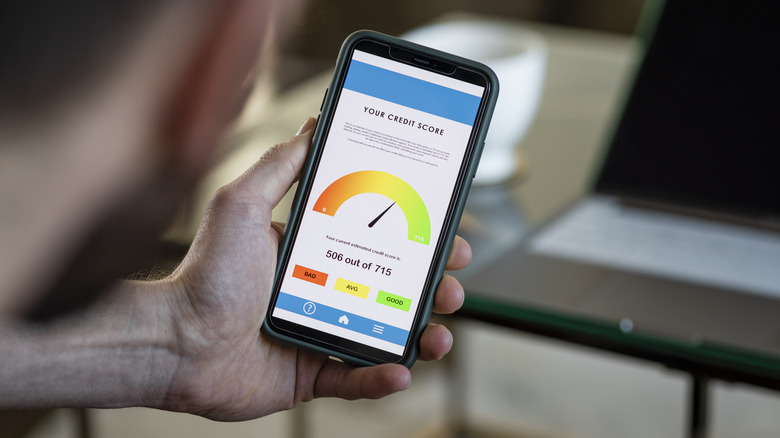Does Your Credit Score Really Drop If You Check It?
Credit can have a huge impact on your life. From your ability to take out a loan or apply for a credit card to your ability to rent, credit can make or break important financial decisions. Different calculations, all determined by your long-term track record with credit, asses your "creditworthiness" (or how likely you are to repay loans and pay your bills). These calculations boil down to a single snapshot: your credit score. Among the many different calculations that make up your credit score is how many times someone has actually pulled (accessed) your credit report.
Credit reports can be pulled by loan providers, banks, credit card companies, or anyone else looking for a full accounting of your credit history and yes, this can negatively impact your credit score. While your credit score is a reflection of what is on your credit report (which includes your past and current lines of credit as well as your payment history with those lines of credit) they do not appear on your credit report. This is because, depending on the specific calculations of the company determining your score (there are two main providers: FICO and VantageScore), you can have multiple credit scores.
While pulling your credit report can have a negative impact on your overall credit score, this impact is ultimately determined by the type of credit check being used. There are two types of credit checks (hard and soft) and each can have very different impacts on your credit score.
Hard credit check
Even though many jobs or companies might look into your credit, hard inquiries are generally limited to a few situations. Hard inquiries are mainly used if you apply for a loan, credit card, phone, or utility, or if a landlord pulls your credit for a rental application. These can, and will, negatively impact your credit score. With that being said, hard inquiries will generally only result in a loss of between one and five points (but can lower it by 10 points in some cases), so those with solid credit won't be too impacted. Despite the potential to drop your score, hard inquiries only affect your score for one year, and only appear on your credit report for two years.
Another thing to keep in mind is that credit report-producing bureaus (the main three being Equifax, Experian, and TransUnion) as well as credit score companies like FICO are more amenable to the concept of rate shopping than ever before. For instance, if you are researching the best interest rate on a car loan you will probably have multiple credit checks during a small period of time while you apply to different lenders. Rather than each credit check negatively impacting your credit score, companies like FICO have created time frames for rate shopping (the current FICO model allows you to consolidate inquiries in a 45-day period). This ensures multiple inquiries only count as one hard inquiry on your report. However, this doesn't apply to multiple credit card applications.
Soft credit check
Soft credit checks are a more accessible and easy way for you to regularly monitor your credit score. When you, as the individual, view your score it is considered a soft check which has no negative impact on your credit score. Soft checks can be extremely beneficial in helping you monitor your overall credit. Oftentimes, these credit checks are offered by your bank or through free credit reports from third-party websites, apps, or groups. Some soft checks might appear on your credit report, but they have no impact on your credit score.
If you're wondering why you need to regularly monitor your credit score through soft checks, there is more than one answer. For starters, regular credit monitoring can help you discover any potential theft or fraud that might occur. Large and sudden changes to your credit score can alert you to potential problems and allow you to investigate the issue before the situation gets worse. Regularly monitoring your score is that knowing your existing credit score can help you gauge if you would (or wouldn't) qualify for a new loan or credit card before you even apply. Since these applications often include hard checks which can hurt your score, knowing if you qualify ahead of time can save you needless credit hits. Similarly, soft checks can let you know if you should be working to improve your score, which can be beneficial when you need a loan or credit card in the future.


